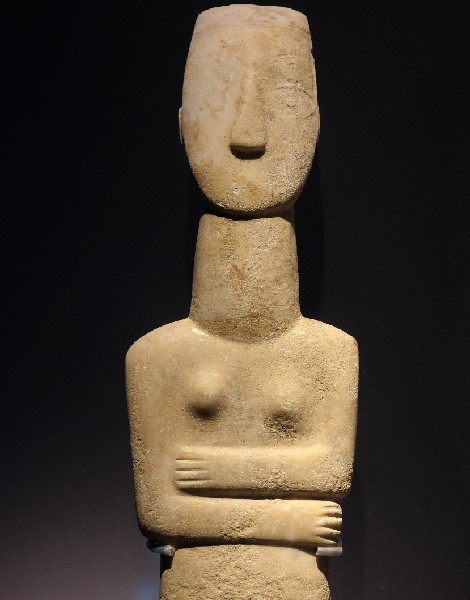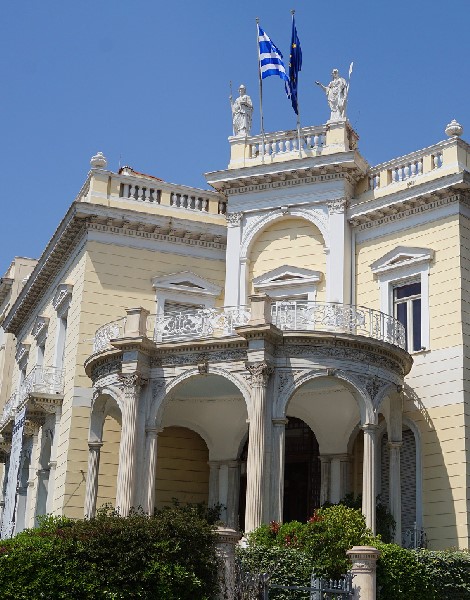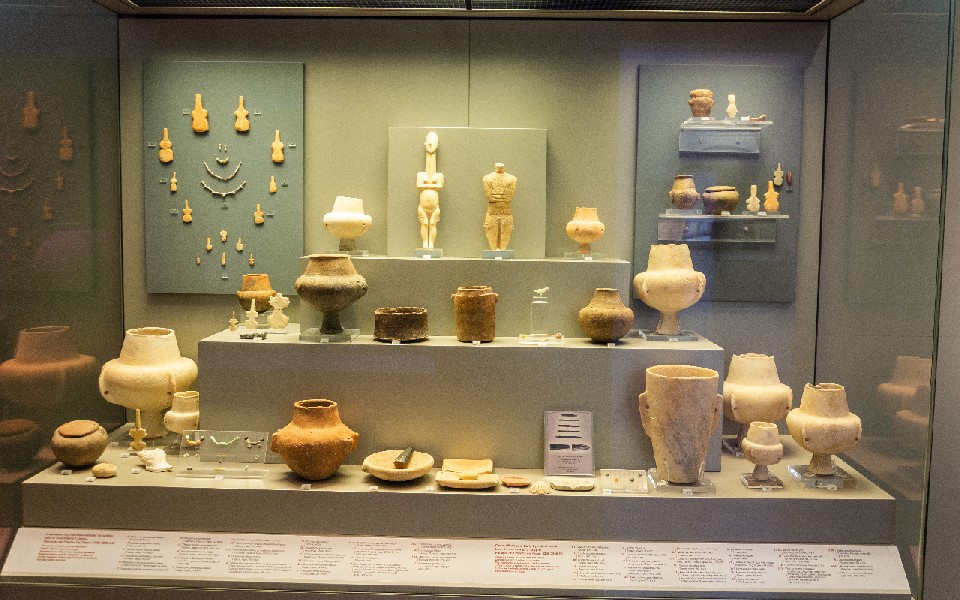A controversial agreement regarding the long-term loan and eventual return of a privately-held collection of Bronze Age figurines in the United States has been ratified at committee level by the Greek Parliament.
The complex deal, which paves the way for the return of 161 Cycladic figurines, was formally approved by the Standing Committee on Cultural and Educational Affairs. Until recently, the artifacts had been in the private collection of American billionaire Leonard N. Stern, an 84-year-old pet supplies and real estate businessman and philanthropist. The artifacts were then purchased by an anonymous New York-based collector, who donated them to the Institute of Ancient Greek Culture in Delaware, with the provision that they be exhibited at the Metropolitan Museum of Art before returning Greece.
“Many of [the pieces] are extremely rare or even unique examples of the art and artisanship of the 3rd millennium BC Cycladic civilization and offer new data to scientific knowledge of the period,” announced Greek Government spokesman Yannis Oikonomou at the end of August.
Now that the agreement has been ratified, a selection of 15 figurines from the collection, dated to between 3300 and 1100 BC, will be sent to Greece by mid-October to be exhibited at the Museum of Cycladic Art in Athens for a year. The entire collection will then be loaned to the Metropolitan Museum in New York for a period of 10 years (January 2024 to January 2034), following which, the figurines will be returned to Greece in batches of 15, every five years.

© Shutterstock

© Shutterstock
While the agreement has been passed at committee level, opposition parties voted against the bill and continue to voice their concern. They argue that the agreement legitimizes the possession of Greek antiquities, illegally removed from the country. In statements to the press, the Greek Government has not provided any details as to how the artifacts in question were excavated and exported from Greece in the first place. They have simply been described as “unknown artifacts.”
This rightly poses a conundrum. Archaeologists have long argued that antiquities of unknown provenance are devoid of any useful information regarding their function or cultural significance. The illicit removal of artifacts robs them of their archaeological context.
Nevertheless, Greek Culture Minister Lina Mendoni hails the agreement as a success, saying that “the bill will bring back to Greece 161 antiquities that we did not know existed, were not registered in any ministry department, and therefore we would never have acquired or claimed.”
And while some have argued that the Government should have simply launched proceedings for their immediate repatriation from the US, the agreement will not stop Greece from demanding illicitly removed antiquities be returned from other countries in the future. According to Greek law, the state is the only legal owner of Greek antiquities.
Greek authorities continue to tirelessly campaign for the return of antiquities illegally excavated and exported from the country. The most prominent case, that of the Parthenon Sculptures, plundered from the Acropolis by Lord Elgin in the early 19th century and now on display at the British Museum in London, has gained international attention for four decades.
With information from ekathimerini.com.












